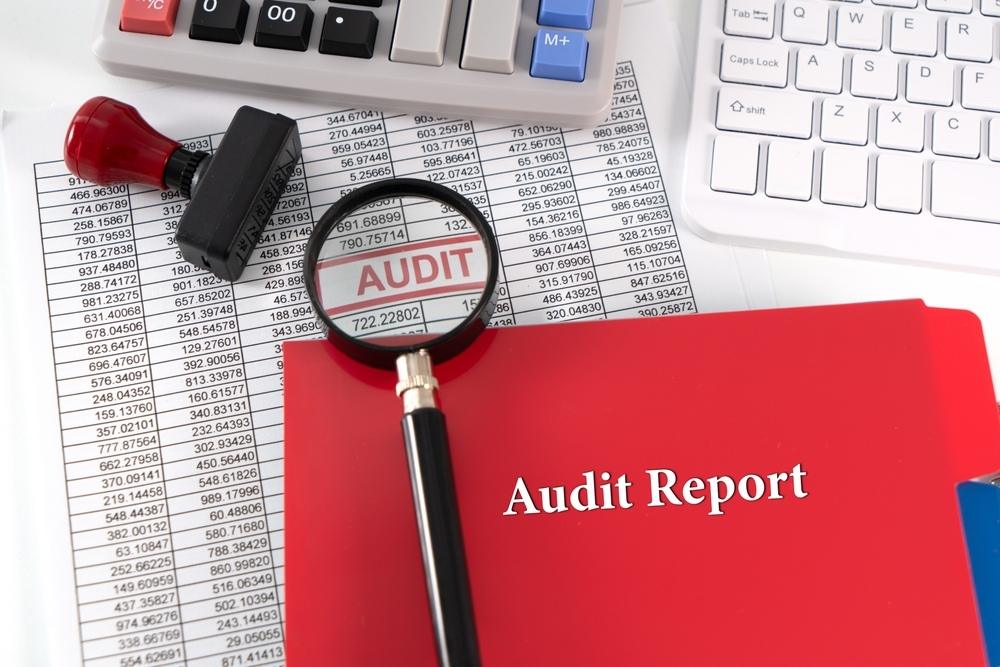Running a business in the UAE Free Zones is a thrilling journey filled with opportunities, growth, and international exposure. But with great opportunity comes great responsibility — especially when it comes to financial compliance. In these fast-evolving Free Zones, a financial audit is not just a routine check; it’s a legal, strategic, and reputational necessity.
What Are Financial Audits and Why Are They Important?
Financial audits ensure a firm’s financial statements are correct, compliant with the law, and convenient to use for all parties.
Definition of Financial Audits
Financial auditing is the examination of an organization’s financial statements by an outside auditor to ensure accuracy, compliance and transparency of reports that have been produced as part of an independent examination process. Financial auditors serve as financial health checks ensuring records reflect actual business performance.
Key Objectives of Financial Audits
Financial audits attempt to ensure legality, verify credibility, uncover errors, and provide evidence of issues or risk for business and stakeholder trust. They provide dependable insights for informed decision-making and business expansion for stakeholders.
Benefits of Financial Audits for Businesses
Audits foster trust with investors, banks and regulators by verifying operational efficiency and preventing financial errors from happening, providing insights that assist companies to optimize management strategy for sustainable growth and provide insights to optimize operations overall.
Overview of UAE Free Zones and Their Compliance Requirements
UAE Free Zones provide business advantages while adhering to local regulations – this may require mandatory financial audits as part of compliance obligations.
What Are UAE Free Zones?
UAE Free Zones are great spots for businesses. You get to own 100% of your company as a foreigner, get tax perks, and the setup is pretty easy. The rules are made to help international trade, investments, and new businesses grow in places like Dubai and Abu Dhabi, and even further afield.
Why Do Free Zone Companies Need to Comply with Audit Regulations?
Following the rules makes sure things are open, correct, and responsible in how these Free Zones work. Regular audits identify errors, prevent mismanagement and safeguard investor trust – providing for smooth operations while assuring investor peace-of-mind and investor security.
Explore a focused overview of: Top 13 Reasons Why Accounting is Important for Your Business Growth
Key Differences Between Free Zone and Mainland Business Audits
Free Zone audits follow distinct regulations, timelines and auditors than mainland regulations do; audits remain mandatory when renewing licenses while mainland companies enjoy greater latitude in compliance procedures.
Why Are Financial Audits Mandatory in UAE Free Zones?
Audits are mandated by law to enhance transparency, uncover any malpractice and ensure investor and regulatory trust.
Legal and Regulatory Requirements for Free Zone Companies
UAE Free Zone financial auditing is legislatively required; companies are obligated to present audited accounts within 90-180 days after the end of their accounting period and failure to do so may lead to fines or suspension of the trade license, thus the necessity for constant audits in order to provide operating legitimacy and continuity of business.
Ensuring Transparency and Accountability
Audits are an essential aspect to ensure transparency and accountability within UAE Free Zones, so that companies behave ethically and responsibly manage funds, and demonstrate to regulators, partners, and investors that activities comply with the law, and enhance UAE’s image worldwide as a safe business hub.
Preventing Financial Fraud and Mismanagement
Financial audits provide an effective solution against fraud, mismanagement and inaccurate reporting. By independently reviewing transactions, statements and records independently conducted financial auditors can quickly detect irregularities before they morph into serious issues threatening company assets – while simultaneously assuring internal controls are functioning appropriately, contributing towards long-term financial stability and operational efficiencies within Free Zone enterprises.
Supporting Business Growth and Investor Confidence
A well-conducted audit enhances credibility and investor confidence for the company. Audited financial reports present reliability and professionalism and assure stakeholders of your integrity as their business manager. For UAE Corporate Tax Law, entities that pursue Qualifying Free Zone Person (QFZP) status (to be eligible for 0% corporate tax rate) must have audited accounts to stay qualified and compliant.

What Happens If You Don’t Conduct a Financial Audit?
Incorrectly failing to conduct audits can lead to fines, license cancellation, and loss of investor confidence.
Penalties for Non-Compliance in UAE Free Zones
Incorrectly failing to perform audits can block trade license renewal and lead to fines, while violation derails operations and reflects poor governance, which will jeopardize regulatory intervention as well as business continuity problems.
Impact on Business Operations and Reputation
Failing to perform audits annihilates bank, investor, and partner trust, with the risk of losing funding sources, partners, opportunity for development, reputation benefits, and competitive advantage.
How to Avoid Audit-Related Penalties
Proactive audit planning and accurate records reduce penalties. Business One Tax and Accounting offers bookkeeping, VAT accounting and Corporate Tax Services designed to keep your business compliant and audit-ready year round.
Tap to take a quick look at: Accounts Payable Explained: Key Insights You Should Know
How to Prepare for a Financial Audit in UAE Free Zones
Preparation is key to an efficient audit process. Start by updating and organizing all financial records – invoices, receipts, payroll information and VAT filings should be recorded correctly – using Bookkeeping Services providers like GKIS as they offer consistent records that minimize delays or confusion during an audit process.
Before your audit begins, ensure you reconcile bank statements, verify vendor and customer balances, review internal controls and establish clear documentation demonstrating how payments and cash management were authorized or implemented – this will speed up the auditing process considerably.
You’ll typically need to submit supporting documents such as:
- The trial balance and general ledger
- Bank statements and reconciliations
- VAT returns and corporate tax filings
- Payroll and HR records
- Contracts, lease agreements, and loan documents
Business One Tax and Accounting can make audit preparation effortless for you by working directly with your auditor to ensure all documents are prepared in time for an efficient inspection process. Our team works directly to coordinate between our auditor and ourselves and you to ensure all audit-related deadlines are met on schedule.
Choosing the Right Auditor for Your Free Zone Business
An experienced auditor assures compliance, minimizes errors and facilitates financial reporting operations efficiency.
What to Look for in a Financial Auditor
Select auditors authorized by your Free Zone who understand local legislation, reliability and accuracy. They are an integral part in making compliance procedures less complicated and minimizing errors and delays that will cost additional expenses and lead to further delays in delivery timetables.
Questions to Ask Before Hiring an Audit Firm
Being in accordance with International Financial Reporting Standards, exposure to carrying out similar Free Zone businesses, fees and unhidden charges prior to undergoing an audit process. Honesty and transparency make it easier to undergo an audit process.
Top Audit Firms for Free Zone Companies in the UAE
Business One Tax and Accounting connects companies with certified auditors, seamlessly aligning accounting, payroll, VAT, corporate tax compliance as well as long-term financial integrity for maximum efficiency and regulatory compliance.
At Business One Tax and Accounting, we have helped hundreds of Free Zone businesses throughout Dubai, Abu Dhabi, Sharjah and beyond remain compliant while using audits as an instrument of business excellence. Visit our Accounting Services, VAT Services, or Payroll Services. We guarantee your figures tell a story of openness, expansion, trustability, and achievement.
The Role of Financial Audits in Business Success
Beyond compliance, financial audits enable your company to precisely represent its actual financial condition, hence supporting strategic decision-making. By raising your capacity to project and plan, auditors may identify possible cost savings or inefficiency zones.
Your audited financial statement also strengthens your corporate profile when approaching banks or seeking funds from investors for loans and investments, therefore demonstrating that your company is dependable, sustainable, and ready for its future development.
At Business One Tax and Accounting, audits are an integral component of business maturity – they sharpen insights while building confidence among stakeholders and driving long-term success.
The End Note!
To conclude, Financial audits in UAE Free Zones are essential to transparency, credibility, and growth of any organization. Noncompliance could result in penalties, license delays, and lost opportunities – Business One Tax and Accounting offers seamless audits through professional Accounting, Bookkeeping, VAT Services, Corporate Tax Return Preparation Services and Payroll Solutions that ensures your business stays compliant and ready to grow successfully in UAE Free Zones.






